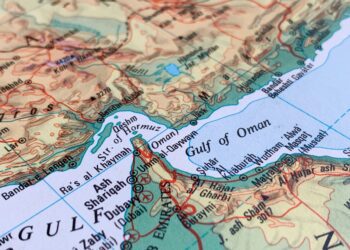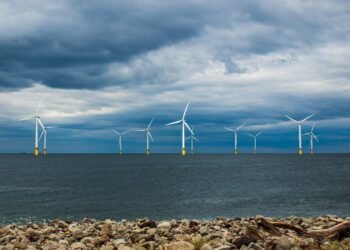Extreme weather caused by climate change is driving up the prices of basic food products worldwide and posing wider risks to society, a new study has found.
The cost of a wide range of goods – from potatoes in Britain to coffee in Brazil – saw dramatic spikes in recent years due to weather conditions that were “so extreme they exceeded all historical precedent prior to 2020,” according to the study led by Maximillian Kotz of the Barcelona Supercomputer Center.
Previous studies have examined how high temperatures have affected the cost of food produce in the long term, by impacting yields and hitting supply chains. The new research, published Monday, looked at 16 examples across 18 countries around the world where prices spiked in the short term as a result of either extreme heat, drought or heavy precipitation between 2022 and 2024.
Cabbage prices in South Korea were 70% higher last September than in September 2023 following a heatwave in August.
The price of olive oil shot up by 50% in Europe in January 2024 from a year earlier after a prolonged drought across Italy and Spain in 2022 and 2023, while one of the most severe droughts that Mexico has faced over the last decade also led to a sharp increase in fruit and vegetable prices that month.
Rice prices soared by 48% in Japan in September 2024 in the wake of a heatwave that was the hottest since regional records began in 1946, bar the equally hot summer of 2023.
Ghana and Ivory Coast account for almost 60% of the world’s cocoa production. So a heatwave there in early 2024 that scientists say was made 4 degrees Celsius hotter by climate change saw global cocoa prices rise by a massive 280% in April that year.
Healthy food tends to cost more than less healthy alternatives, so a jump in food prices can often lead low income households to cut back on nutritious food like fruit and vegetables, the new study said. It highlighted the resulting “knock-on societal risks,” with weather-impacted prices potentially contributing to health complications like malnutrition, Type 2 diabetes and heart disease.
By driving up food prices extreme weather conditions can also worsen overall inflation, which can lead to political unrest and social upheaval, the researchers noted.
“Until we get to net-zero emissions, extreme weather will only get worse, and it’s already damaging crops and pushing up the price of food all over the world,” Kotz, who also works for the Potsdam Institute for Climate Impact Research in Germany, said in a press release about the study.
“People are noticing (this), with rising food prices number two on the list of climate impacts they see in their lives, second only to extreme heat itself.”
The findings add to the growing literature on how climate change is affecting agriculture around the world, said Tim Benton, a professor of population ecology at the University of Leeds in England who was not involved with the research.
“Shortfalls in supply inevitably impact on markets, driving up prices for those people who buy the food. Sadly, this impact on food prices is exacerbated by a tenser, more contested world, where global trade is already under stress from conflict or trade disputes,” he told CNN.
“Looking ahead, we are increasingly facing a world where volatility is the norm resulting in a permanent ‘cost-of-living’ crisis. The longer we fail to tackle climate change with the urgency it requires, the more such things will impact us all,” he added.
The study’s publication comes ahead of the UN Food Systems Summit Stocktake conference in Addis Ababa in Ethiopia on Sunday, where world leaders will gather to consider the threats to the global food system.
Read the full article by Lianne Kolirin / CNN












